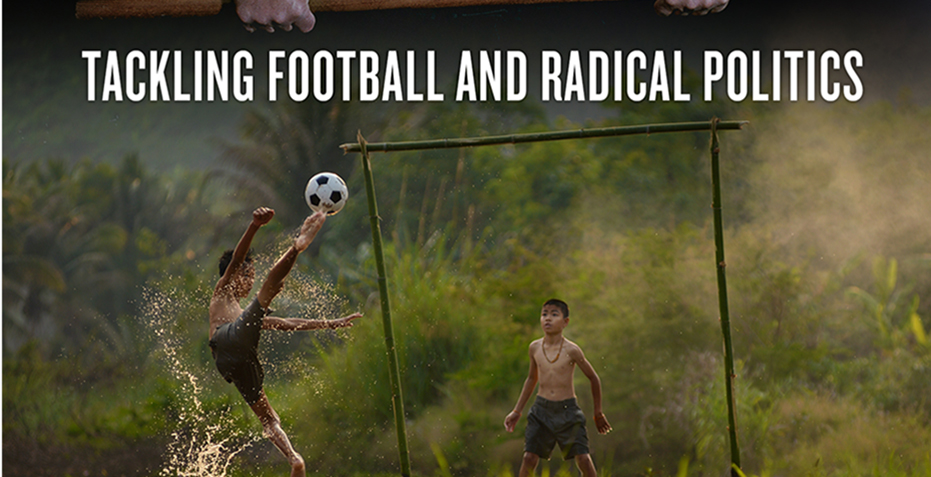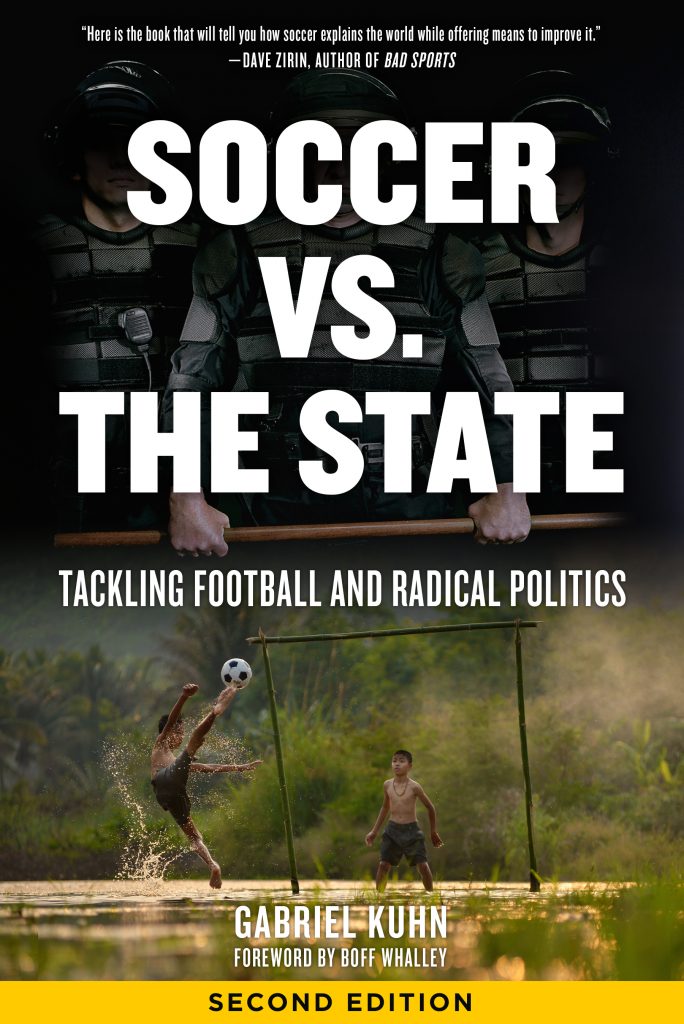By Jesper Högström
Offside, #3, 2011, p. 134-135
(Translated from Swedish; excerpts)
2011
Gabriel Kuhn, an Austrian author living in Stockholm, is a convinced anarchist and has played in his country’s second league; he is the right man to tackle the problem [of football and left-wing politics]. In order to fully appreciate the book, one certainly has to share his premise that both socialism and football are good things, but even for those who disagree, it is a worthwhile read. […]
One has to be a cynic not to be touched by many of the heart-warming stories in the book. Sometimes football does indeed stand for freedom, equality, and togetherness. For example, when the Algerian professionals refused to play for France in the 1958 World Cup or when the Dutchman John Blankenstein makes himself even more vulnerable as a referee by openly speaking about his homosexuality.
Football cannot be captured in political definitions. Both the sport and “socialism” have too many limitations. But I do agree with Kuhn that football can be a perfect environment “to experience the combination of individual freedom and social responsibility”. Personally, I also happily follow his directives for socialist football: “consideration and modesty”, no cheating, and respect both for opponents and referees (who should be treated as “comrades”). Alright, good soul of football, now you have your own classic. Ironic, though, that it is a publisher from the U.S., the home of rigorously commercialized sports, that created this forum for alternative football culture. Hardly any of the contested issues in the world’s most popular game is missing, not nationalism, chauvinism, or the permeating commercialization. What we are handed is a broad picture of football’s political relevance.
In four chapters we can find an international range of authors (including Gerd Dembowski, well-known to a German audience) that examines everything from the myth of the working-class origins of the sport to pressing contemporary issues to examples of a truly alternative football culture – a culture lived by the English football ambassadors of the Easton Cowboys (and Cowgirls) who receive a worthy portrait in Soccer vs. the State. Yes, there are some recycled texts and themes in here too – we do know enough about the FC United of Manchester, Volker Ippig, and Cristiano Lucarelli at this point – but Soccer vs. the State reaches so far beyond the limits of mainstream left-wing football discourse that its purchase is no less than a must – at least for those who want to see further than the limits of the contaminated professional business. In addition, it is an important wake-up call for all who think that football should not be blended with politics.







